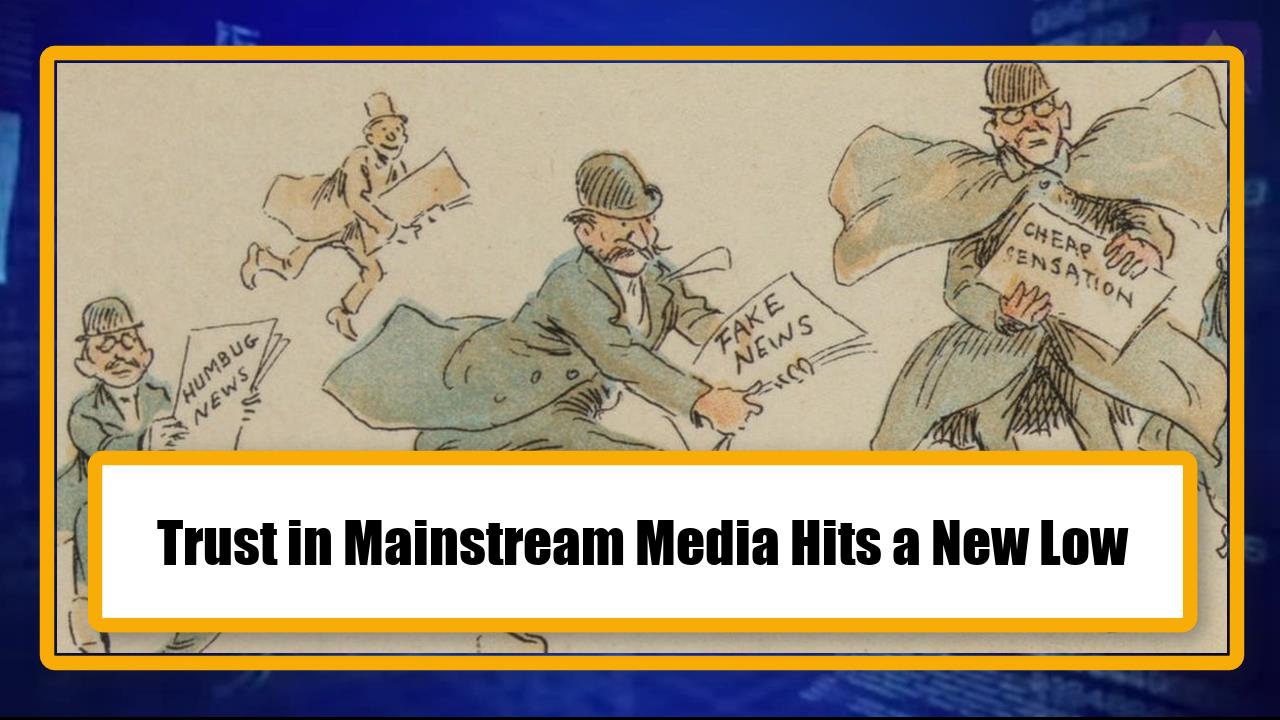Video:
Take our online poll:
AI Analysis:
The lack of trust in mainstream media is a complex issue with various contributing factors. It's important to note that not everyone distrusts mainstream media, but there are significant segments of the population who do. Here are some of the key reasons behind this lack of trust:
1) Perceived Bias: Many people believe that mainstream media outlets have a political or ideological bias, and they may feel that these biases influence the way news is reported. Some individuals perceive media organizations as having a liberal or conservative slant, which can erode trust.
2) Sensationalism: Critics argue that some media outlets prioritize sensational stories or headlines to capture attention, which can lead to a perception of a lack of objectivity and a focus on entertainment rather than informing the public.
3) Corporate Ownership: Concerns about media consolidation and ownership by a few large corporations have led some to question the independence and journalistic integrity of mainstream media outlets. They worry that corporate interests might influence news coverage.
4) Misinformation and Errors: Instances of incorrect reporting or retractions can damage trust. In the age of the internet, information spreads quickly, and mistakes can be widely disseminated before corrections are made.
5) Selective Reporting: Accusations of selective reporting or cherry-picking stories to fit a particular narrative can lead to a loss of trust. Some believe that media outlets emphasize stories that align with their agendas.
6) Social Media and Echo Chambers: The rise of social media has allowed people to consume news within their own echo chambers, reinforcing their existing beliefs. This can lead to a distrust of media outlets that do not align with their preconceived notions.
7) Polarization: In politically polarized environments, people may distrust media sources that do not align with their partisan views. This is exacerbated by the perception that the media is contributing to the divisiveness in society.
8) Economic Pressures: The news industry has faced significant economic challenges in the digital age, leading to cost-cutting measures, layoffs, and reduced investigative reporting. This can impact the quality and reliability of journalism.
9) Questioning of Authority: A broader societal shift toward questioning authority and institutions, including the media, has influenced the level of trust in mainstream news sources.
10) Echo Chambers and Confirmation Bias: Many people tend to seek out news sources that confirm their existing beliefs, which can reinforce a lack of trust in media that contradicts those beliefs.
11) Political Attacks: Politicians and public figures often criticize and undermine the media, contributing to a climate of distrust. This has been particularly notable in recent years.
12) Mistakes and Ethical Lapses: Instances of ethical violations and journalistic errors can further erode trust. For example, plagiarism, conflicts of interest, or biased reporting can damage a news outlet's credibility.
It's important to note that not all mainstream media outlets are the same, and there are variations in journalistic quality and objectivity. Many respected media organizations adhere to rigorous editorial standards and provide valuable, accurate information. To rebuild trust in mainstream media, some argue for greater transparency, more diverse newsrooms, and an emphasis on balanced reporting. Additionally, media literacy and critical thinking skills can help individuals assess the credibility of news sources and discern fact from opinion.
Chart:

References:
Party Affiliation by News Source


Comments